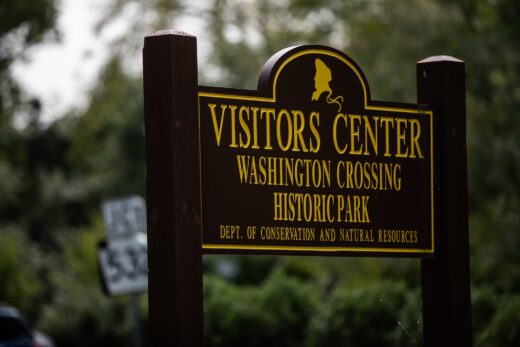The Friends of Washington Crossing Park have been awarded a grant by the National Park Service to propel forward research into the pivotal role African Americans played in the Continental Army’s daring crossing of the Delaware River during the American Revolution.
The National Park Service has granted the Friends of Washington Crossing Park $61,995 as part of the Historic Preservation Fund’s African American Civil Rights grant program.
This grant will enable the Friends of Washington Crossing Park, a nonprofit group that helps support Washington Crossing Historic Park in Upper Makefield and Solebury townships, to conduct extensive research through a dedicated research fellow on the involvement of African Americans in the Continental Army’s crossing of the Delaware River on December 25, 1776, according to the group.
The research will delve into the “Ten Crucial Days” campaign, which encompassed the pivotal battles of Trenton and Princeton.
Additionally, the study will focus on the soldiers and camp followers of the Bucks County winter encampment, as well as the lives of free and enslaved individuals residing and working nearby.
The findings from this research will be integrated into a range of interpretive programs at the historical site, park officials said.
“Sharing the previously untold stories of underrepresented individuals is a priority as we approach the 250th anniversary of the American Revolution in 2026,” said Jennifer Martin, executive director of the Friends of Washington Crossing Park. “By sharing these stories, we hope to engage new audiences and encourage repeat visitation
National Park Service Director Chuck Sams expressed pride in awarding the grant funding to recognize locations and narratives associated with the African American experience.
“Since 2016, the African American Civil Rights program has provided over $100 million to document, protect, and celebrate the places, people, and stories of one of the greatest struggles in American history,” he said.
Despite being excluded from the Declaration of Independence, many African Americans were willing to fight for their freedom even though the Continental Congress initially prohibited their enlistment.
“As state regiments were unable to fulfill their quotas, policies changed and the enlistment of thousands of African Americans commenced, particularly in New England. Some of those regiments participated in the crossing. Some of these people were free, others enslaved. Some served voluntarily, others were sent as substitutes for their enslavers. Some were soldiers, others offered support directly as camp followers and indirectly in roles as wagoners, craftsmen, or ferrymen,” according to a statement.
The significance of the Civil Rights movement can be traced back to the African Americans who actively participated in the American Revolution, both willingly and unwillingly, park officials said.
“To fully comprehend why African American soldiers joined the fight for independence, it is crucial to uncover their personal stories,” Martin said. “This information will provide critical context about who fought, their motivations, and the profound impact of their stories on future generations, including the Civil Rights movement.”
Out of the numerous applicants, the Friends of Washington Crossing Park were selected as one of only 37 projects across the country to receive funding.









